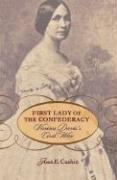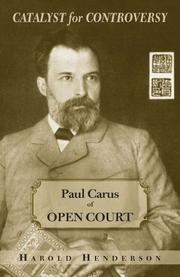| Listing 1 - 10 of 25 | << page >> |
Sort by
|
Multi
ISBN: 0061981567 9700000030063 Year: 2009 Publisher: New York : HarperAudio,
Abstract | Keywords | Export | Availability | Bookmark
 Loading...
Loading...Choose an application
- Reference Manager
- EndNote
- RefWorks (Direct export to RefWorks)
"Kevin Connolly has used an unusual physical circumstance to create a gripping work of art. This deeply affecting memoir will place him in the company of Jeanette Walls and Augusten Burroughs." — Sara Gruen, author of Water for Elephants "Charming ... Connolly recounts growing up a scrappy Montana kid—one who happened to be born without legs... [Double Take] makes for an empowering read." — People As featured on 20/20, NPR, and in the Washington Post: Kevin Connolly is a young man born without legs who travels the world—by skateboard, with his camera—on his "Rolling Exhibition," snapping pictures of peoples' reactions to him... and finds out along the way what it truly means to be human.
Book
Year: 2009 Publisher: [s.l.] : Waxmann Verlag GmbH,
Abstract | Keywords | Export | Availability | Bookmark
 Loading...
Loading...Choose an application
- Reference Manager
- EndNote
- RefWorks (Direct export to RefWorks)
Was ist ein Mythos? Wie setzt man sich ein ewiges Denkmal? Mythen ähneln gewissermaßen Knödeln: Stehen sie dampfend auf dem Tisch, ist es fast unmöglich, das exakte Verhältnis der Zutaten zu ermitteln, das die Klöße gerade noch geschmeidig und doch nicht mehlig macht. Ebenso rätselhaft ist die Entstehung von Mythen, aber sie finden in ,modernen' Gesellschaften nach wie vor reißenden Absatz. Die vorliegende Studie versucht erstmals, anhand des Nachlebens des enthaupteten Grafen Lamoraal von Egmont (1522-1568), der Frage nachzugehen, warum und wie eine historische Gestalt zu einer mythischen Figur avancieren konnte. Was machte ihn unsterblich? Wie und wieso erreichte der Name Egmont ein durch die Jahrhunderte hindurch vom Mittelmeerraum bis in die DDR nachhallendes Echo? In diesem Buch werden unter Einbeziehung mannigfaltiger historischer und literarischer Quellen die verschiedenen Stationen und Schattierungen des Egmont-Mythos vom Kopf an in ihrem jeweiligen Kontext beleuchtet. Auf diese Weise entwickelt der Autor ein Modell, das an ähnlich mythischen Figuren wie Masaniello, Wilhelm Tell und Jeanne d'Arc erprobt werden kann. Dieses Buch wurde 2012 im Rahmen des Programms Geisteswissenschaften International vom Börsenverein des Deutschen Buchhandels ausgezeichnet.
Book
Year: 2009 Publisher: [s.l.] : Waxmann Verlag GmbH,
Abstract | Keywords | Export | Availability | Bookmark
 Loading...
Loading...Choose an application
- Reference Manager
- EndNote
- RefWorks (Direct export to RefWorks)
Was ist ein Mythos? Wie setzt man sich ein ewiges Denkmal? Mythen ähneln gewissermaßen Knödeln: Stehen sie dampfend auf dem Tisch, ist es fast unmöglich, das exakte Verhältnis der Zutaten zu ermitteln, das die Klöße gerade noch geschmeidig und doch nicht mehlig macht. Ebenso rätselhaft ist die Entstehung von Mythen, aber sie finden in ,modernen' Gesellschaften nach wie vor reißenden Absatz. Die vorliegende Studie versucht erstmals, anhand des Nachlebens des enthaupteten Grafen Lamoraal von Egmont (1522-1568), der Frage nachzugehen, warum und wie eine historische Gestalt zu einer mythischen Figur avancieren konnte. Was machte ihn unsterblich? Wie und wieso erreichte der Name Egmont ein durch die Jahrhunderte hindurch vom Mittelmeerraum bis in die DDR nachhallendes Echo? In diesem Buch werden unter Einbeziehung mannigfaltiger historischer und literarischer Quellen die verschiedenen Stationen und Schattierungen des Egmont-Mythos vom Kopf an in ihrem jeweiligen Kontext beleuchtet. Auf diese Weise entwickelt der Autor ein Modell, das an ähnlich mythischen Figuren wie Masaniello, Wilhelm Tell und Jeanne d'Arc erprobt werden kann. Dieses Buch wurde 2012 im Rahmen des Programms Geisteswissenschaften International vom Börsenverein des Deutschen Buchhandels ausgezeichnet.
Book
ISBN: 9786613134684 1400830516 1283134683 9781400830510 0691150052 9780691150055 0691150052 9780691150055 0691130140 Year: 2009 Publisher: Princeton, NJ
Abstract | Keywords | Export | Availability | Bookmark
 Loading...
Loading...Choose an application
- Reference Manager
- EndNote
- RefWorks (Direct export to RefWorks)
This is the first biography of the last and greatest British idealist philosopher, R. G. Collingwood (1889-1943), a man who both thought and lived at full pitch. Best known today for his philosophies of history and art, Collingwood was also a historian, archaeologist, sailor, artist, and musician. A figure of enormous energy and ambition, he took as his subject nothing less than the whole of human endeavor, and he lived in the same way, seeking to experience the complete range of human passion. In this vivid and swiftly paced narrative, Fred Inglis tells the dramatic story of a remarkable life, from Collingwood's happy Lakeland childhood to his successes at Oxford, his archaeological digs as a renowned authority on Roman Britain, his solo sailing adventures in the English Channel, his long struggle with illness, and his sometimes turbulent romantic life. In a manner unheard of today, Collingwood attempted to gather all aspects of human thought into a single theory of practical experience, and he wrote sweeping accounts of history, art, science, politics, metaphysics, and archaeology, as well as a highly regarded autobiography. Above all, he dedicated his life to arguing that history--not science--is the only source of moral and political wisdom and self-knowledge. Linking the intellectual and personal sides of Collingwood's life, and providing a rich history of his milieu, History Man also assesses Collingwood's influence on generations of scholars after his death and the renewed recognition of his importance and interest today.
Book
ISBN: 1299053599 Year: 2009 Publisher: [Place of publication not identified] Texas A&M University Press
Abstract | Keywords | Export | Availability | Bookmark
 Loading...
Loading...Choose an application
- Reference Manager
- EndNote
- RefWorks (Direct export to RefWorks)
Often called the grandfather of Russian rocketry, K. E. Tsiolkovskii first conceived of multi-stage rockets that would later be adapted as the basis of both the U.S. and Soviet rocket programs. Mining a myriad of Russian archives, Andrews produces a study of Soviet technological propaganda, local science education, public culture in the 1920s and 1930s, and the cultural ramifications of space flight.
Authors, Russian --- Astronautics --- Engineers --- Literary Criticism --- Technology & Engineering --- Biography & Autobiography
Book
Year: 2009
Abstract | Keywords | Export | Availability | Bookmark
 Loading...
Loading...Choose an application
- Reference Manager
- EndNote
- RefWorks (Direct export to RefWorks)
Legislators --- Elections --- Constitutional amendments --- Selection and appointment --- United States. --- Elections. --- United States --- Political science --- Biography & autobiography
Book
ISBN: 9780271036250 Year: 2009 Publisher: University Park, Pennsylvania : The Pennsylvania State University Press,
Abstract | Keywords | Export | Availability | Bookmark
 Loading...
Loading...Choose an application
- Reference Manager
- EndNote
- RefWorks (Direct export to RefWorks)
In The Enlightened Joseph Priestley Robert Schofield completes his two-volume biography of one of the great figures of the English Enlightenment. The first volume, published in 1997, covered the first forty years of Joseph Priestley's life in England. In this second volume, Schofield surveys the mature years of Priestley, including the achievements that were to make him famous-the discovery of oxygen, the defenses of Unitarianism, and the political liberalism that characterized his later life. He also recounts Priestley's flight to Pennsylvania in 1794 and the final years of his life spent along the Susquehanna in Northumberland. Together, the two volumes will stand as the standard biography of Priestley for years to come. Joseph Priestley (1733-1804), a contemporary and friend of Benjamin Franklin and Thomas Jefferson, exceeded even these polymaths in the breadth of his curiosity and learning. Yet Priestley is often portrayed in negative terms, as a restless intellect, incapable of confining himself to any single task, without force or originality, and marked by hasty and superficial thought. In The Enlightened Joseph Priestley, he emerges as a man who was more than a lucky empiricist in science, more than a naive political liberal, more than an exhaustive compiler of superficial evidence in militant support of Unitarianism. In fact, he was learned in an extraordinary variety of subjects, from grammar, education, aesthetics, metaphysics, politics, and theology to natural philosophy. Priestley was, in fact, a man of the Enlightenment.
Unitarian churches --- Chemists --- Églises unitariennes --- SCIENCE --- BIOGRAPHY & AUTOBIOGRAPHY --- BIOGRAPHY & AUTOBIOGRAPHY / Science & Technology. --- Chemists. --- Verlichting (cultuurgeschiedenis). --- Clergy --- Clergé --- Chemistry --- General. --- Science & Technology. --- Clergy. --- Priestley, Joseph, --- Priestley, Joseph --- Priestley, Joseph (Naturwissenschaftler).

ISBN: 1442624876 1442637218 9781442624870 0802090176 9780802090171 9780802099556 0802099556 9781442637214 9781487511425 1487511426 9781442667242 1442667249 1459341716 9781459341715 1442624884 Year: 2009 Publisher: Toronto Buffalo University of Toronto Press
Abstract | Keywords | Export | Availability | Bookmark
 Loading...
Loading...Choose an application
- Reference Manager
- EndNote
- RefWorks (Direct export to RefWorks)
Wolfgang Capito (1478-1541), a leading Christian Hebraist and Catholic churchman who converted to Protestantism, was a pivotal figure in the history of the Reformation. After serving as a professor of theology in Basel and adviser to the archbishop of Mainz, he moved to Strasbourg, which became, largely due to his efforts, one of the most important centres of the Reformation movement after Wittenberg.This penultimate volume in the series is a fully annotated translation of Capito's existing correspondence covering the years 1532-36 and culminating in the Wittenberg Concord between the Lutheran and Reformed churches. The correspondence includes Capito's efforts, alongside those of his colleague Martin Bucer, to negotiate that compromise. Other letters deal with local, political, financial, and doctrinal questions, as well as Capito's personal life. The letters demonstrate the importance of Capito and his colleagues in providing advice in matters concerning the churches in southern Germany and Switzerland, but also regarding the evangelicals in neighbouring France.Milton Kooistra's annotation provides historical context by identifying classical, patristic, and biblical "ations as well as persons and places. Continuing in the tradition of rigorous scholarship established in Volume 1 and Volume 2, this volume provides crucial details on the evolution of Capito's thought and its contribution to the Reformation movement.
Christianity --- Religion --- Philosophy & Religion --- Capito, Wolfgang, --- Capito, Wolfang Fabricius --- Fabritius Capito --- Köpfel, Wolfgang --- Humanists --- Reformation. --- Scholars --- Persons --- Learning and scholarship --- Protestant Reformation --- Reformation --- Church history --- Counter-Reformation --- Protestantism --- History --- Theologians --- Christian theologians --- BIOGRAPHY & AUTOBIOGRAPHY / General.

ISBN: 0674029267 9780674029262 0674030370 9780674030374 0674022947 9780674022942 0674262565 Year: 2009 Publisher: Cambridge, MA : Harvard University Press,
Abstract | Keywords | Export | Availability | Bookmark
 Loading...
Loading...Choose an application
- Reference Manager
- EndNote
- RefWorks (Direct export to RefWorks)
When Jefferson Davis became president of the Confederacy, his wife, Varina Howell Davis, reluctantly became the First Lady. Pro-slavery but also pro-Union, Varina Davis was inhibited by her role as Confederate First Lady and unable to reveal her true convictions.Cashin offers a splendid portrait of a fascinating woman who struggled with the constraints of her time and place.
Presidents' spouses --- Presidents --- Presidents' wives --- Spouses --- Wives --- Davis, Varina, --- Davis, Jefferson, --- Davis, Varina Jefferson, --- Howell, Varina, --- Davis, Varina Howell, --- Jefferson-Davis, Varina, --- Family. --- United States --- Confederate States of America --- History --- Social aspects. --- Social conditions. --- BIOGRAPHY & AUTOBIOGRAPHY / Women.

ISBN: 1282138928 9786613808226 0809386429 144162337X 9781441623379 9780809386420 0809317974 9780809317974 0809329042 9780809329045 Year: 2009 Publisher: Carbondale, IL, USA Southern Illinois University Press
Abstract | Keywords | Export | Availability | Bookmark
 Loading...
Loading...Choose an application
- Reference Manager
- EndNote
- RefWorks (Direct export to RefWorks)
BIOGRAPHY & AUTOBIOGRAPHY --- General --- Religious literature --- Publishers and publishing --- Periodicals --- Philosophers --- Journals (Periodicals) --- Magazines --- Library materials --- Mass media --- Serial publications --- Newspapers --- Press --- Book publishing --- Books --- Book industries and trade --- Booksellers and bookselling --- Literature --- Bible as literature --- History --- Publishing --- Biography
| Listing 1 - 10 of 25 | << page >> |
Sort by
|

 Search
Search Feedback
Feedback About UniCat
About UniCat  Help
Help News
News